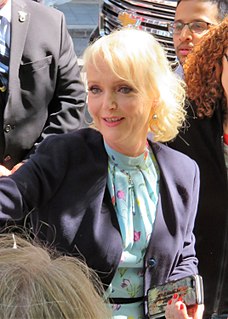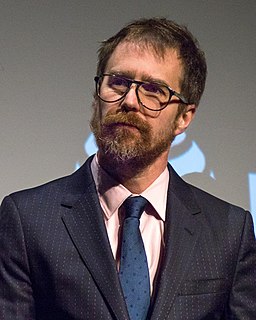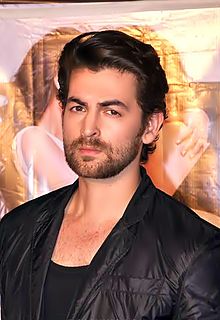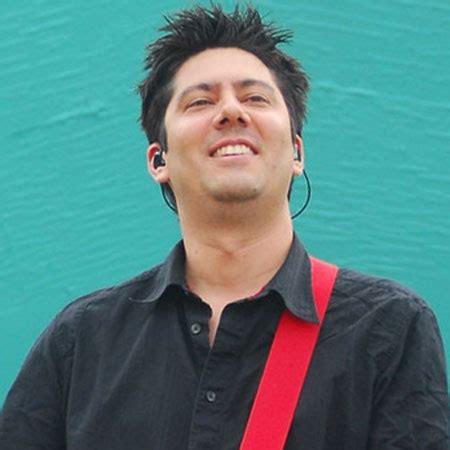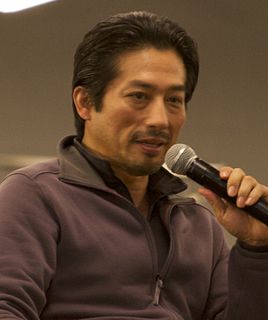A Quote by Miranda Richardson
The writing is the springboard for your intuitive stuff and then you see, maybe a colour of what you want to achieve. Then you bring in the technique you've learnt. But when you're on film, you're not always in control of that. That's what makes me believe in a kind of collective unconscious, a sort of experience you draw on.
Related Quotes
The collective unconscious appears to consist of mythological motifs or primordial images, for which reason the myths of all nations are its real exponents. In fact the whole of mythology could be taken as a sort of projection of the collective unconscious. We can see this most clearly if we look at the heavenly constellations, whose originally chaotic forms are organized through the projection of images. This explains the influence of the stars as asserted by astrologers. These influences are nothing but unconscious instrospective perceptions of the collective unconscious.
I always try to bring a little bit of my own personality to the character, or some sort of personal connection makes it a little bit more of an organic portrayal and the audience can kind of maybe believe it a little bit more. But I always look for something to kind of connect with and identify with, or bring something of myself to the table.
I get really worried, like if they say, 'Take vocal lessons,' or something because it's kind of like I used to really love to draw when I was a kid and then I took like an art class - because everyone said, 'Oh, you're so good, you should take a class and maybe you can be really good,' and then I went to the class and then they showed me how to use a ruler and perspective and all this stuff and it totally made me not want to do it at all.
Be clear in your mind what you want the outcome of your communication to achieve. If your aim is more than just to vent your anger towards a meat eater and you sincerely want that person to be a kinder more compassionate being, then you must start by seeing them as a kind and compassionate person. If you are unable to see them as kind and compassionate, then how dare you demand them to see themselves that way.
I was the strongest during my career, and that helped me a lot, definitely in the beginning, when I needed to race against riders who were much older than me and had the power and the experience. I could beat them with my technique. At a certain moment I not only had the technique but then the power came and the experience, and then you are on the best level that you ever can reach. But then the explosivity starts to go down, you're more afraid, and the technique goes down a bit. But it's OK, because it never goes completely down.
Nobody that I know really likes the feeling of having no power and not being able to influence people. But most of us aren't too conscious of what we are trying to do and get that control and that power so people end up sort of playing all kinds of unconscious manipulative games or they're sort of half aware, they have an idea of a strategy or goal they want to use and they think about it. But then in the heat of the moment, it kind of all flies out the window.
